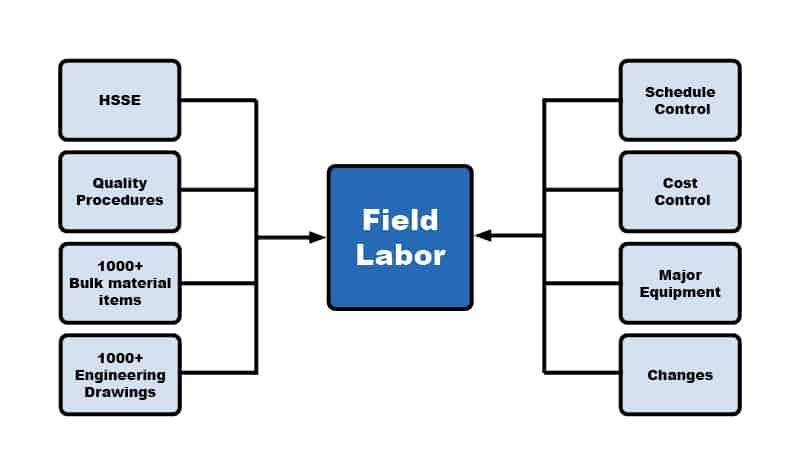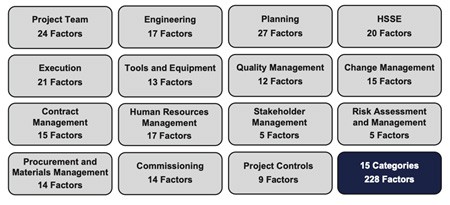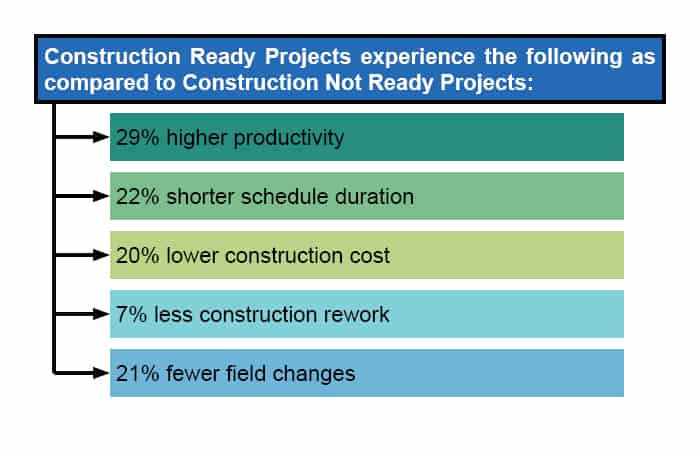Interface Consulting’s experts can help assess a project’s readiness to move into the construction stage.
In Interface’s experience, projects may fail to meet their schedule and cost metrics if the contractor moves into the field before the project and its organizational components are sufficiently mature. Much has been written about the required upfront planning, prior to the final investment decision, to support project success, and there are several tools available to assess the robustness of upfront planning. Regardless of the amount of pre-final investment decision planning, projects may fail during the construction or execution stage, where the bulk of the funds are typically spent, in part because the project is not ready to move into the construction phase.
Interface Consulting’s construction readiness assessment can be used on an active project to support the decision to initiate construction. It can also be used as a forensic tool to assess whether the project moved into the field with sufficient project planning.
The largest project cost component is generally field or construction labor. This is also the area where the project team typically has the least control and is subject to substantial risk as the contractor tries to integrate engineering, equipment, bulk materials, and field labor, which can result in poor field construction or labor productivity. For a large project with thousands of activities and hundreds or several thousands of field staff, ensuring labor efficiency can be overwhelming if the project is not ready to move into the field.
The graphic below illustrates a sample of issues facing the contractor that, in Interface’s experience, must be addressed to effectively utilize field labor and maintain productivity. The graphic does not attempt to depict all of the items, just a few of the more prominent ones.

Successfully integrating all of these issues is a challenging task, and it is important that the contractor not move into the field before the engineering is sufficiently complete and all of the components are in place to support a successful project.
Assessing Construction Readiness
Interface Consulting’s team of experts uses the Construction Industry Institute (CII) Construction Readiness Assessment (CRA) tool, in conjunction with our decades of industry experience, to determine if the project is ready to move into the field. This tool uses a total of 228 factors within 15 categories, as shown below, to ascertain the key factors that differentiate Construction Ready from Construction Not Ready projects.
228 Factors Used to Assess Construction Readiness (1)

As indicated in the graphic below, on average, Construction Ready projects are delivered 22% more quickly and cost 20% less. Construction productivity, construction rework, and field changes are also some of the key differentiators between Construction Ready and Construction Not Ready projects. A construction readiness assessment informed by industry tools and Interface’s expertise can therefore be valuable in mitigating costly schedule delays, cost overruns, and construction claims and supporting overall project success.
Outcomes of Construction Ready vs. Construction Not Ready Projects

Interface Consulting Methodology to Assess Construction Readiness
Interface Consulting’s construction readiness assessment is performed in concert with our client stakeholders. Through interviewing key personnel and reviewing project documents, we first determine the current state of the project. Based on these interviews, we develop a list of areas where we wish to focus our review and continue the interview process and document analysis. Our experts then work with the project team through alignment meetings to reach a consensus regarding the project’s gaps and strengths. This process ensures that gaps are fully addressed, including sensitive organizational issues, contractor performance, procurement issues, project team staffing, and workforce productivity, to name a few.
Our rigorous, four-step approach is illustrated below:

Expert Analysis and Support
Each construction project is unique and faces its own set of challenges and risks. Through skillful, thorough assessment of a project’s readiness to move into the construction phase, Interface Consulting provides clients with a realistic, quantitative view of the gaps and their potential impact on cost and schedule so that an informed decision for project success can be made.
(1) Construction Industry Institute, FR-DCC-02 page 13, Figure 4

